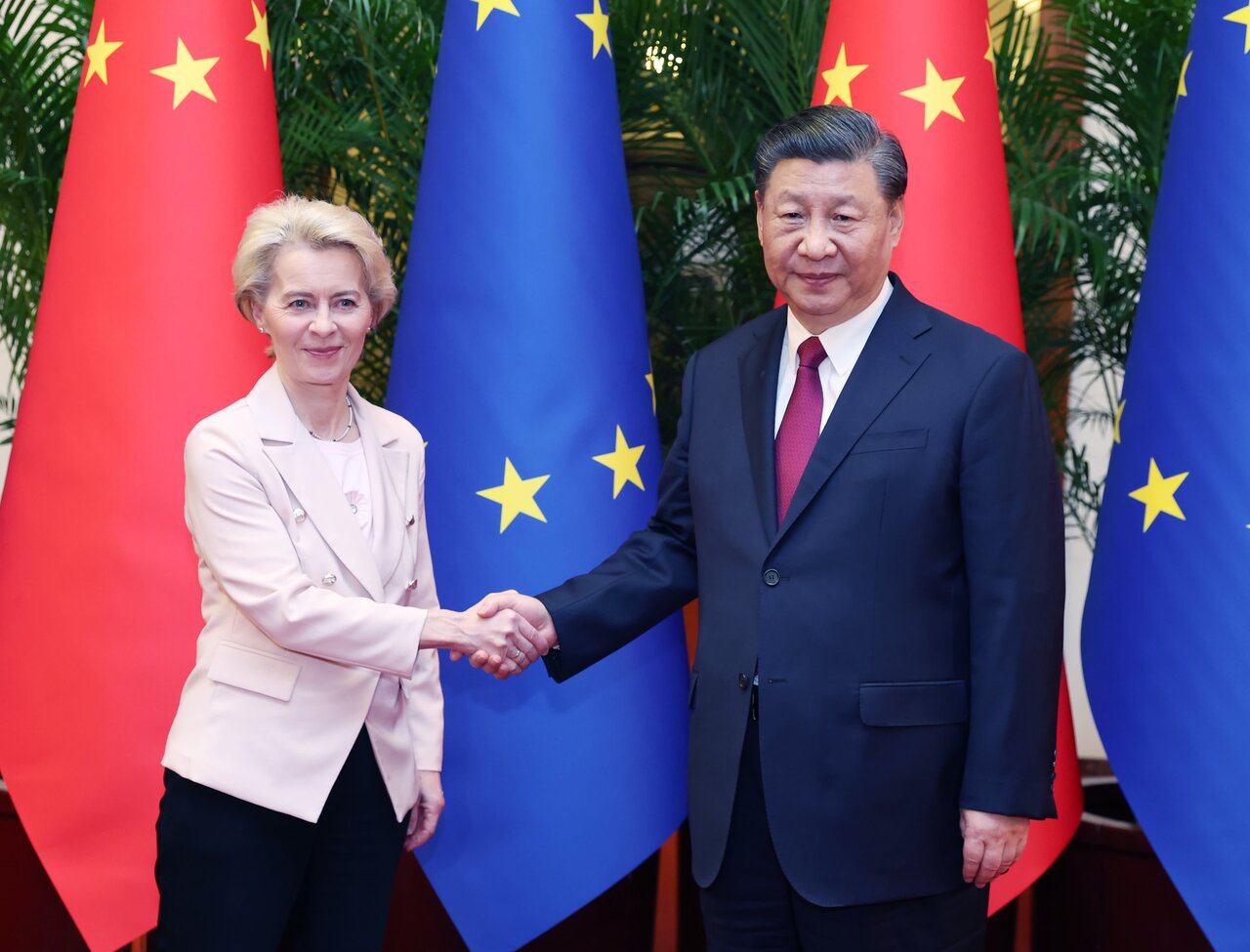50 years of China-EU ties: Upcoming summit highlights China’s key role in shaping Europe’s future

TEHRAN — On July 24, the European Union and China will convene the 25th China-EU Summit in Beijing, marking the 50th anniversary of their diplomatic relations.
European Commission President Ursula von der Leyen and European Council President António Costa will meet with Chinese President Xi Jinping and jointly chair the summit with Premier Li Qiang.
The meeting comes at a time of heightened geopolitical tensions, growing global uncertainty, and weakening multilateral institutions. The summit is seen as a crucial opportunity to recalibrate the EU–China relationship, which has evolved from pragmatic cooperation to one marked by strategic mistrust and growing rivalry. Strains have intensified in recent years due to the suspension of the EU–China Comprehensive Agreement on Investment, concerns over trade imbalances, and disagreements on major global conflicts, notably the war in Ukraine.
Yet despite political headwinds, China remains one of the EU’s most vital economic partners. Annual trade between the two now stands at nearly US$800 billion. European companies continue to benefit from China’s dynamic market of 1.4 billion consumers and an expanding middle class of hundreds of million. Key sectors like luxury goods, electric vehicles, and green technologies see China as a critical growth engine.
China’s remarkable advancements in technology and industrial innovation underscore its importance not just as a market, but as a global partner. From AI to clean energy, China’s achievements offer both competition and cooperation opportunities for European firms. Moreover, its ability to lift hundreds of millions out of poverty and lead a highly coordinated national development agenda has drawn global attention to its governance model—often cited as effective and adaptable in managing long-term challenges.
Facing an increasingly multipolar world, the EU must now strike a difficult balance. On one side lies an assertive United States, with the return of Donald Trump and a rising tide of protectionism and unilateralism. On the other is development model and expanding geopolitical influence. For Europe, preserving strategic autonomy means walking a fine line between upholding democratic values and sustaining its economic competitiveness.
Against this backdrop, China’s Foreign Ministry emphasized the symbolic and strategic importance of the upcoming summit. Spokesman Guo Jiakun noted: “This year marks the 50th anniversary of the establishment of China-EU diplomatic ties as well as the 80th anniversary of the founding of the UN. As changes unseen in a century are accelerating in a turbulent world, and unilateralism and bullying practices have dealt a heavy blow to international order and rules, humanity once again stands at a critical juncture. As two major forces in building a multipolar world, two big markets that support globalization, and two great civilizations that advocate cultural diversity, the upcoming China-EU Summit is of great significance and receives international attention.”
Guo also highlighted the tangible results of five decades of engagement: “Our annual trade volume has jumped from US$2.4 billion to US$785.8 billion. Two-way investment stock has grown from nearly zero to US$260 billion… Effective coordination and cooperation is conducted in climate response and other areas.”
Yet he acknowledged challenges, including rising skepticism within the EU over China’s economic practices and its stance on geopolitical issues:
“Some in the EU have played up the ‘partner-competitor-rival’ characterization of bilateral relations, exaggerated specific economic and trade issues, and groundlessly accused China on the Ukraine issue, which cause unnecessary disruptions to bilateral relations.”
Nonetheless, China remains optimistic about the relationship’s future. Guo called for both sides to “draw experience and inspiration from bilateral relations over the past 50 years,” and to “jointly plan for the cooperation in the next 50 years… and open up a brighter future for the China-EU comprehensive strategic partnership.”
The summit is expected to address critical issues including trade imbalances, market access, and standard-setting in emerging technologies. Climate change, digital governance, and reform of international institutions are also on the agenda, reflecting the shared interest in maintaining a stable and rules-based global order.
In an era defined by complexity and fragmentation, rebuilding trust between China and the EU will not be easy. But as both sides acknowledge the depth and potential of their relationship, the summit in Beijing could serve as a turning point—renewing dialogue, reaffirming shared interests, and setting a path for the next half-century of cooperation.
Leave a Comment